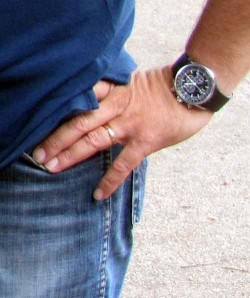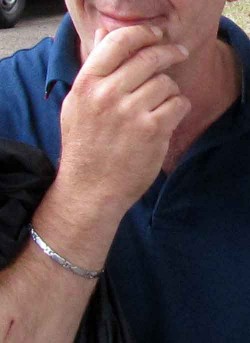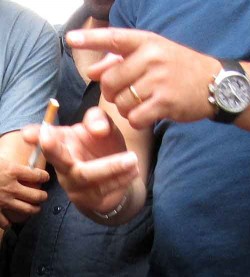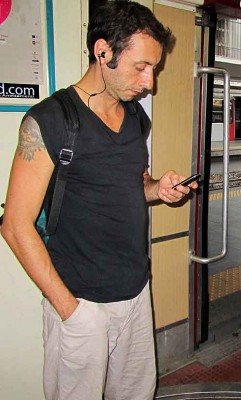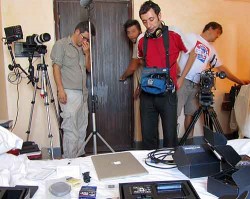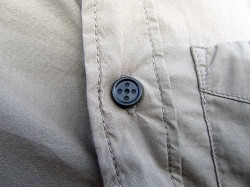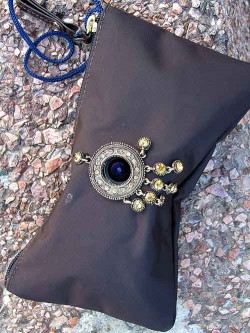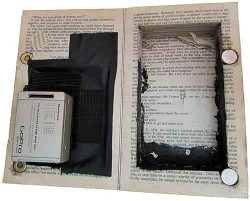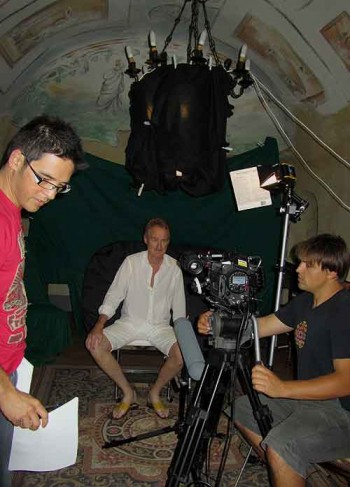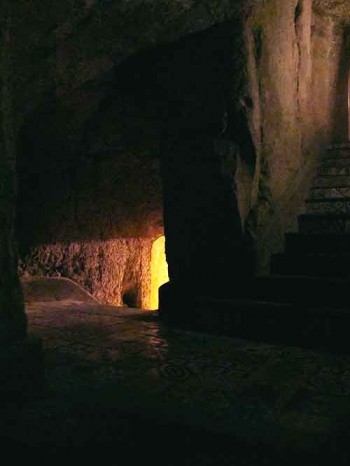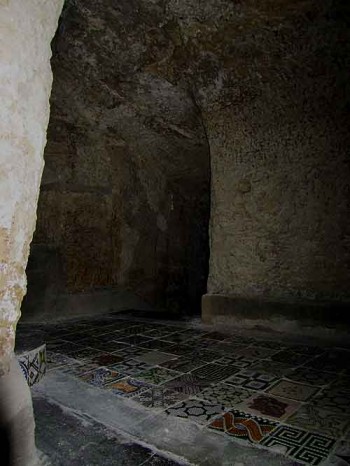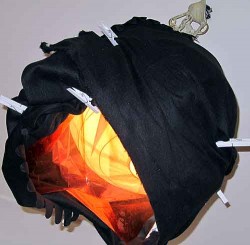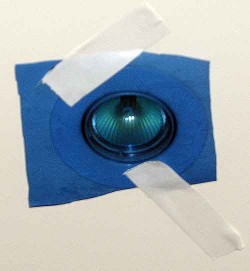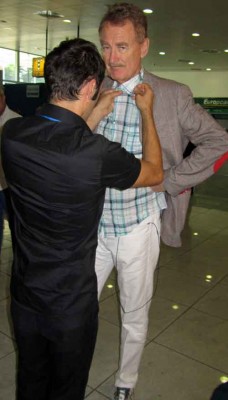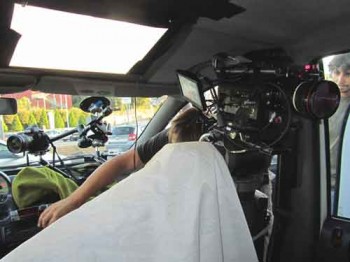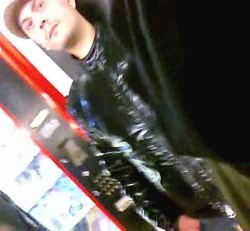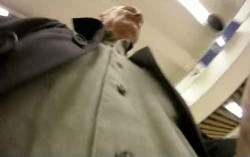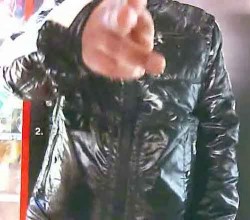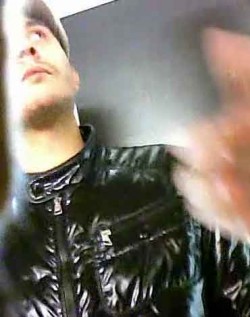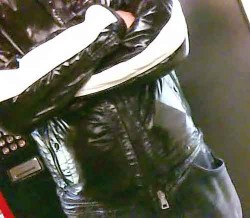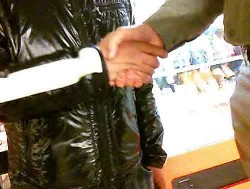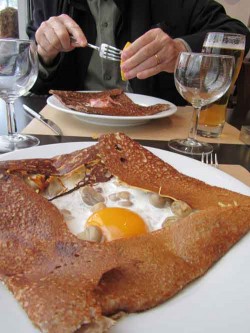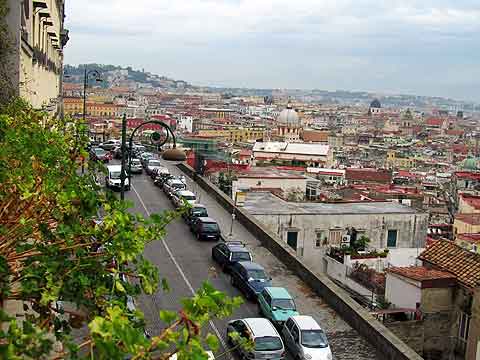
Thiefhunting, Day One, still more. This is an old-fashioned town, lightly touched by the 21st century. Vendors ply the streets like the horse-and-buggy days my parents describe, only these peddlers drive rickety rusty trucks piled with everything from fruit to diapers to toys, and bark through muffled microphones: “come one, come all, I’ve got everything for you—cheap!” Several trucks may be wending their ways on the steep roads below our hotel, and they politely alternate their announcements.
It’s a noisy town, too. Church bells ring insistently all morning, to shake the lazy from their beds. The nightly neighborhood fireworks I’ve already mentioned (I’m watching a spectacular show just this moment from the terrace bar). Cars and motorcycles whiz by on the narrow mountain road, spewing fumes, deafening. There’s a lot of horn-honking, and frequent musical police sirens. The words “charming” and “quaint” only apply to certain aspects of the city: dining, for sure; the people, architecture, ancient culture and traditions.
The fact that the city is somewhat of an anachronism is important to this story. It explains a little bit of the pickpockets’ fascination with us, and their reaction to us. Theirs is a simple, predictable existence. Not simple as in easy; their chosen career has plenty of difficulties and complications. But simple as in routine, repetitive, and limited. There’s work, there’s family life, there’s celebration and I’m sure there’s joy and pride.
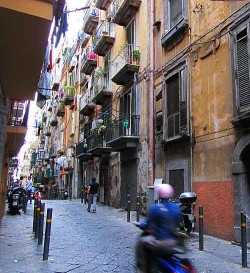
Slyly lifting a wallet from the pocket of an obvious tourist on a bus is one of the daily routines. Speaking with the victim—briefly—happens now and then. Coffee with the victim? Never. Hours of conversation? Unheard of. An outsider actually asking questions, listening, interested, non-judgmental? A total shock. And not unpleasant! Or…reason for suspicion. Is it a sting of some sort? A trap? “The system?”
The men start out fake-friendly. Then they are confused. They become curious and cagey, cautious and protective. But Bob and I are believable because we’re honest. We admit outright that we’re making a documentary. We say we’re looking for the top talent in the profession. We explain that we want to feature this job, and we need the best representatives to do it. Yes, the film will be international, and that means it will be shown here, too.
We’re listening, and the thieves are flattered. We do not fit the routine. We are a curiosity, and a surprisingly welcome intellectual stimulation. We trigger new thoughts, inspire them to say things they’ve never before put into words. We become their future dinner topic, a big thing in their day, maybe in their year. Possibly more.
We’re making a film, we tell the thieves. A film. A movie… This is a concept so remote to the people of this neighborhood, the people who live this simple-but complicated existence, they know it is impossible that the making of a film would touch them—yet it has.
Just the thought brightens their day. And they’re intrigued. Why not? Everyone in this town knows what they do. It’s no secret, they’ve been doing it their entire adult lives and even before. What’s to lose?
Bob and I prepare for the meeting in the park. Will the pickpocket gang show up? Will they really sign the required releases and demonstrate for our cameras? Fervent hope and suspense make it impossible to sleep.

